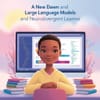Large Language Models (LLMs) are transforming the way neurodivergent individuals learn and interact with information. These models offer personalized learning experiences, providing customizable educational support and breaking down complex concepts into manageable chunks. They can also simplify difficult information, making it more accessible and easier to understand, which is particularly helpful for individuals with dyslexia or those who struggle with technical jargon.
LLMs can assist in developing new skills by providing step-by-step guidance, suggestions for phrasing responses in social interactions, and helping with task management. However, there are concerns about LLMs, such as the potential for misinformation, over-reliance on technology, and a lack of neurodivergent perspective. Many LLMs are trained on neurotypical data, which can lead to a lack of understanding and support for neurodivergent communication styles.
To address these concerns, researchers recommend incorporating neurodivergent perspectives and communication styles into LLM development. This can help create more inclusive and supportive tools that cater to the unique needs and preferences of neurodivergent learners. Implementing robust personalization features and ongoing feedback mechanisms can also ensure that LLMs remain responsive to the needs of neurodivergent users.
By acknowledging both the benefits and challenges of LLMs, we can work towards creating more inclusive and supportive tools for neurodivergent learners. As LLMs continue to evolve, it's essential to prioritize the needs and perspectives of neurodivergent individuals, ensuring that these tools promote accessibility, understanding, and empowerment.


